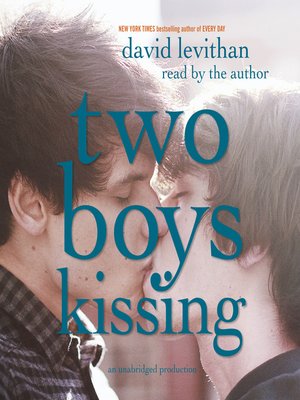I remember checking out E.M. Forster’s Maurice from a Dallas library and being
relieved that it was one of those old hard covers without any illustration or
adornment. Title, author, that’s all. (Maybe that’s where the expression, You can’t judge a book by its cover came
from…a time when you, quite literally, couldn’t.)
I wasn’t one to check out a lot of gay
fiction from libraries. Fear? Perhaps. But back then I wasn’t much of a novel
reader in the first place. Newspapers, magazines and way too many textbooks
provided enough—too much—reading for my liking. I filled much of my free time
watching hours and hours of television.
Maybe that proved to be a good thing. If I’d read even a few gay novels,
I might have concluded that, once out, my social circle would consist of gay
prostitutes. I might still be in the closet.
Somehow I mustered up the gumption to buy
Randy Shilts’ And the Band Played On: Politics,
People and the AIDS Epidemic while still living in Dallas. I don’t remember
where I bought it. I can’t imagine twenty-three-year-old me doing it without
having to take a shower as soon as I got home. No doubt, I bought a few other
books—never read?—at the same time so I could sandwich The AIDS Book in between
them. Maybe the cashier wouldn’t notice the word AIDS in bold letters on the cover. Maybe he or she would see the
word Band and think I was a musician. But maybe not. This was 1987 in the midst
of the AIDS crisis when people talked about getting it from toilet seats and
water fountains. Call it an act of enlightenment that the clerk didn’t put on a
pair of latex gloves just to handle the book. (I’d have remembered that.) I am
certain I was red-faced and sheened in a layer of perspiration by the time my
books were bagged and I rushed for the exit.
When I moved to L.A. two years later, I
could buy books without embarrassment at A Different Light bookstore in West
Hollywood. A gay bookstore! How wonderful to browse without having to wander
away for a single Gay and Lesbian shelf in the Self’-Help section of regular
bookstores. (The message I took always away was that, if you were gay, you
needed help.) Still, I appreciated having a plain paper bag to take the books
back to the car.
I’d also pick up a copy of Edge, the free gay newspaper of the time,
whenever I was in West Hollywood. No bag to hide it from view. I was not so
ironically on edge about Edge as I
carried it back to my car. I worried that the wrong person might see the name
on the front cover. If I folded it so the back cover was in sight, things were
worse. Invariably, the back had a full-page advertisement for a gay chat line
with an alluring image of buff boys in jock straps. I felt like I presented a
clear target for anyone venturing to West Hollywood wishing to bash a fag.
Fortunately, I’ve evolved. But then so has
society. In fact, my ability to buy a gay book—even one with a let’s-be-clear title
like Two Boys Kissing—without going red
in the face may be more about society’s enlightenment than my own personal
comfort level. The lion in The Wizard of Oz oozed courage than I do.
I felt shame again today as I stepped up to
order a Frappuccino at Starbucks. I had about an hour to kill before my
appointment with my psychiatrist and I had pulled my current read from my
backpack. While paying, I set the book on the counter. The barista glanced at
the cover and I realized the title was in clear view with an even clearer
title: Marbles: Mania, Depression,
Michelangelo, & Me. I quickly flipped to the back cover. An obvious
signal that I didn’t want the guy to read it, right? Well, he went out of his
way to bend over and read the spine. I was momentarily mortified.
And then I regained composure and shrugged
it off. So what if he saw the title? Why should I care if he concludes that I
have a mental health problem? My problem, true enough, but in this context, not
my problem.
Maybe there’s a smidgen of personal growth.
Give it another decade or two and I won’t give a flip what people think about
my books…assuming books still exist as we know them!




